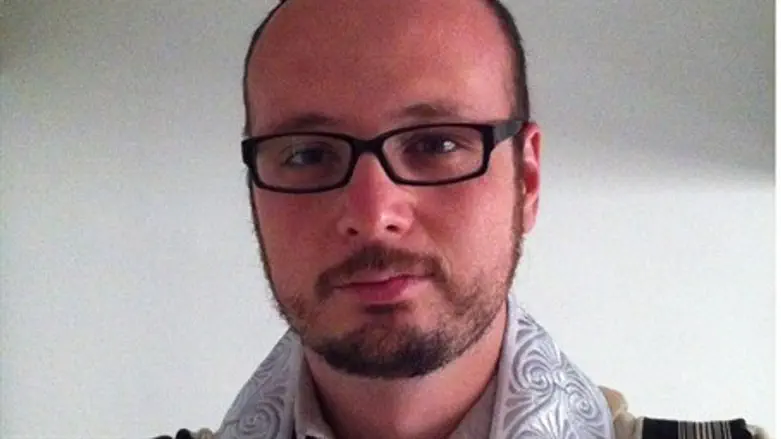
Rabbi Pinchas Punturello, 36, has been appointed to serve as the new emissary for the Shavei Israel organization in southern Italy and Sicily. In his new position, Rabbi Punturello will serve as the area’s chief rabbi, and will work to strengthen the local Jewish community in regions such as Puglia, Campania, Sicily, and Calabria, while also reaching out to the Bnei Anousim (whom historians refer to by the derogatory term Marranos) throughout the area, many of whom are looking to reconnect with the Jewish people.
Shavei Israel, which reaches out to communities of “hidden Jews” and helps them to reconnect with the Jewish People and State of Israel, is undertaking this project in conjunction with the Union of Italian Jewish Communities, the official umbrella organization of Italian Jewry. It marks the first time that a rabbi has been appointed to work specifically with the Bnei Anousim of southern Italy and Sicily.
“We are pleased that Rabbi Pinchas Punturello has joined the ranks of Shavei Israel. This is a direct result of the expansion of our activity throughout southern Italy in light of the growing desire of Bnei Anousim to reconnect with Jewish life,” said Shavei Israel Chairman Michael Freund. “In recent years, a growing number of Bnei Anousim in southern Italy have begun rediscovering their Jewish roots and expressing a desire to draw closer to Israel and the Jewish people. It is incumbent upon us to reach out to them and help them to do so,” he said.
“The Bnei Anousim in southern Italy need to be helped from a cultural point of view, as well as in a spiritual way, and we are here to guide them in this journey”, said Rabbi Punterello. “After all, to come home after 500 or 600 years is not easy, but it's wonderful.”
Rabbi Punterello will work to expand Shavei Israel’s activities throughout Italy, which will include: convening seminars and symposiums for the Bnei Anousim, organizing prayer services and regular classes on Jewish subjects, publishing newsletters and other Italian-language material on Jewish topics and distributing them among various communities in southern Italy; as well as providing assistance with the aliyah, conversion and absorption processes for those members of the community who choose to immigrate to Israel.
He will also head the “Sud Italia” project organized by Shavei Israel and UCEI, Union of Italian Jewish Communities, aims to recover traditional, spiritual and religious rights of all groups, families and individuals, in Puglia, Sicily, Calabria and Campania who are rediscovering their origins and need help.
Southern Italy, much like Spain and South America, cries out for its Jewish past. After the expulsion of the Jews from Spain in 1492, many of them sought refuge in Naples, Puglia, Sicily and Calabria. They included Don Isaac Abarbanel, the great Torah scholar and Biblical commentator who also served as Finance Minister to Spanish King Ferdinand, along with his family. But when the Spanish monarchs captured the region in 1510, a series of further persecutions began, which included forced conversions and expulsions.
The Inquisition was active in the area for centuries and burned Marranos and conversos until 1700 and possibly later. But the Bnei Anousim of the area clung to their Jewish identity handing it down from one generation to the next, and nowadays it is their descendants who are beginning to return.
The Jewish presence in Sicily dates back some two thousand years. Some historians say the first Jews were brought there as slaves by the victorious Roman legions during the Second Temple period. The community steadily grew in the ensuing centuries despite various periods of persecution, and produced an array of great scholars and rabbis. Towards the end of the 14th century, Sicily’s Jews were confined to ghettos and faced increasingly harsh decrees as well as massacres and forced conversions to Catholicism. At the time, Sicily was under the control of the Spanish crown and in 1492, the anti-Semitic measures reached their peak with the Edict of Expulsion, which ordered the remaining Jews to leave.
There were 52 Jewish communities spread out across Sicily, numbering at least 37,000 people. Many left by December 31, 1492, but large numbers of forcibly-converted Jews were compelled to remain behind, where they suffered under the heavy hand of the Inquisition. The first auto-da-fe in Sicily took place in Palermo in June 1511, when the Inquisitors executed nine Sicilian Bnei Anousim for secretly practicing Judaism.